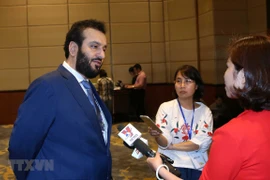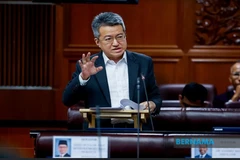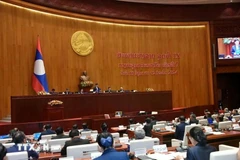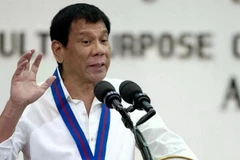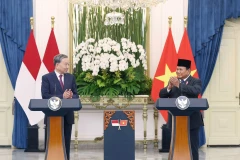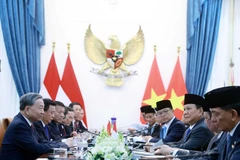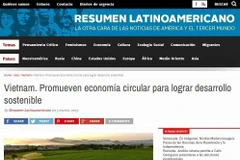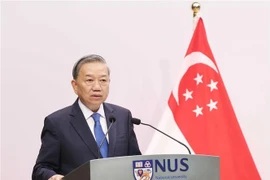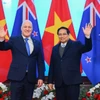Hanoi (VNA) – The 44th Executive Board Meeting of the Organisation of Asia-PacificNews Agencies (OANA), hosted by the Vietnam News Agency (VNA) in Hanoi fromApril 18-20, has highlighted the important role played by professionaljournalism in the context of the emergence of social media and challenges posedby it.
With the theme “Fora professional and innovative journalism”, the event hasfocused discussion on how to effectively deal with fake news and how to regainpublic trust with this context in mind.
Due to the fast development of social media, the role of journalists ischanging. They are no longer the sole source of breaking news and theirresponsibility has extended to the verification of information being sharedamongst the public. They are depended on to validate and analyse information, aswell as help the public find what they need to know.
Accordingto VNA Vice Director General Le Quoc Minh, journalists no longer control ordecide what the public know. This is a major restructuring of the relationshipbetween the public and media institutions.
Thereis declining public trust in news media reported across most of the regions inthe world. The Edelman Trust Barometer reports for 2018 and 2019 revealed that73 percent of respondents from around the world worry about fake news or falseinformation being used as a weapon, with 59 percent agreeing that it is becomingharder to tell whether or not a piece of news was produced by a respected mediaorganisation.
Thereis also widespread belief that fake news is appearing in mainstream press aswell.
Accordingto Kassim, the rising trend of citizen journalism has provided many stories ofpopular and public interest, but the veracity of the information can often bequestionable and heavily biased or opinionated. This misinformation could thenbecome widespread online and through social media. This lack of professionalismhas its ramifications as, if unchecked, it could drag a society or even acountry into political or economic instability and social unrest. This lack ofaccountability threatens the ethical reporting by the mainstream andtraditional media.
Accordingto VNA Vice Director General Minh, ‘citizen journalists’ often make mistakesthat spread unconfirmed news as they rush to post information on socialnetworks. Fake news can only be controlled by publishing information after ithas been verified.
In the face of fabricated and counterfeit news reports, many news media brandsare using the opportunity to show their unique added value as reliable sourcesof information and commentary. Various publishers around the world arestruggling to compete with these new online platforms, while others are uppingtheir game to produce high quality journalism, from long-form stories andanalysis reports to virtual reality reportage and AI-supported messengers tointeract with readers.
Whilemaintaining the production of an influx of verified news articles in variouslanguages, the VNA has been putting greater focus on analysis and in-depthstories, as well as constructive journalism solutions which only professionalreporters and writers are capable of, Minh said.
Publishers, especially news agencies, have to maintain a sustainable trust withtheir clients and end-users, ensuring they return to mainstream journalism and arewilling to pay for high-quality content, he added.
Minh noted that to win back and build up public trust, each agency andjournalist must try their best to deliver outstanding service to citizens, notonly for the purpose of selling a story or a newspaper.
Regardingsolutions to fake news, Bernama DirectorKassim said it is important for news agencies to have fact checkingteams to examine and verify news before it is published.
“Weshould not compromise truth, accuracy, nor accountability for speed,” she said.–VNA



